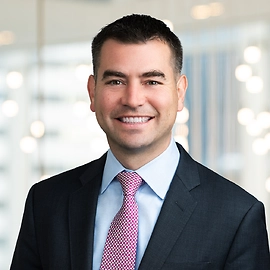Failing a drug test may not kill the buzz for medical marijuana patients in the Empire State. In contrast to courts in California and other jurisdictions, a New York state court has held that medical marijuana users are entitled to reasonable accommodations, even if they only obtain certification after testing positive for marijuana.
In Gordon v. Consolidated Edison, Inc., Kathleen Gordon failed a random drug test by her employer, Consolidated Edison, Inc. (“CEI”). After testing positive, but before her termination, Gordon became a certified medical marijuana patient to treat her inflammatory bowel disease. Gordon informed CEI of her certified status on several occasions between the time she failed her drug test and her termination date. Gordon brought an action alleging discrimination and failure to accommodate under New York State and City Human Rights Laws (“NYSHRL” and “NYCHRL”), as well as the State’s medical marijuana law. Because New York’s medical marijuana law provides that certified patients are disabled for purposes of the NYSHRL, Gordon claimed protected status.
CEI moved for summary judgment, arguing that Gordon was not a member of a protected class because she failed the drug test before she obtained a medical marijuana certification. CEI asserted that Gordon had informed CEI that she had smoked marijuana before the drug test and before she was certified as a medical marijuana patient. CEI also argued, among other things, that the company had an unwritten practice to discharge employees who had worked for less than six months for their first violation of the drug policy.
The New York Supreme Court denied summary judgment on the termination claim. First, the court found that Gordon was a member of a protected class because she was certified as a medical marijuana patient prior to her termination and had informed the company of such status. Second, although CEI’s practice of terminating new employees who fail their first drug test was a legitimate, non-discriminatory reason for dismissing Gordon, the court held that there remained a material issue of fact as to whether the reason was pretextual because that practice was not specified in the company’s drug policy.
The court also denied summary judgment for CEI on Gordon’s reasonable accommodation claim because Gordon informed CEI of her medical marijuana certification but CEI did not appear to engage in a “good faith interactive process to assess her needs and the reasonableness of the accommodation requested.” While CEI claimed that any reasonable accommodation would require it to violate the Drug-Free Workplace Act, the court declined to find an undue hardship because the company’s drug policy allows employees (or at least those who have been employed for more than six months) to continue working even after failing a drug test.
Notably, the court treated the NYCHRL and NYSHRL claims the same. Although the NYCHRL does not define disability to include medical marijuana use, the court held that because the protections of the NYCHRL are more expansive than those under the NYSHRL, medical marijuana status constitutes a disability under the NYCHRL.
This case serves as a reminder to New York employers that all drug testing policies must be clearly written and capture the company’s actual practices regarding testing and any resulting consequences. More importantly, prior to terminating or taking an adverse action against an employee who is a medical marijuana patient, the company must be sure to engage in an interactive dialogue and consider any reasonable accommodations. The NYSHRL and NYCHRL anti-discrimination protections and reasonable accommodation obligations kick in once an employer receives notice that an individual is a certified patient, even if such status is obtained after failing a drug test for marijuana.
Blog Editors
Authors
- Associate
- Member of the Firm

